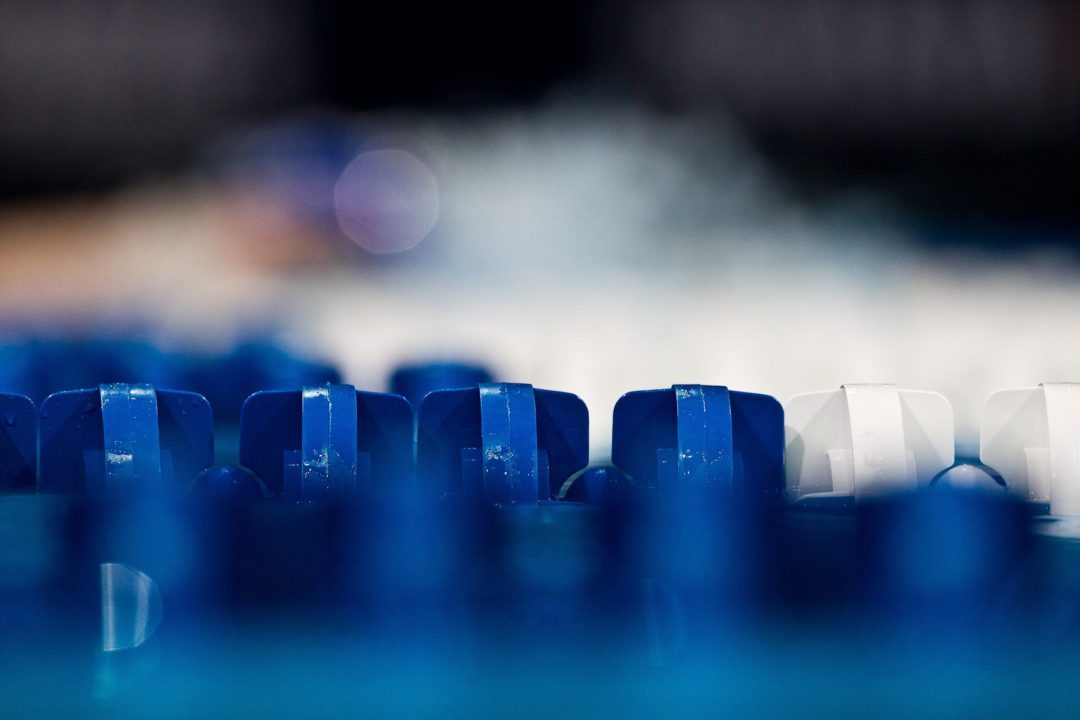In an interview with Sporten.dk earlier this week Short World Championships gold medalist Mads Gleasner was very critical of his preparation for the Olympic Games and his coach at the time, Paulus Wildeboer.
Wildeboer told SwimSwam that he disagreed with Glaesner’s assessment and was satisfied with his team’s preparation for the Games, “Satisfied with the preparation; yes,” Wildeboer. “Satisfied with 8 finals, 11 National records (leading country together with USA), but very unsatisfied with missing our medal chances.”
Wildeboer who spent four years in Denmark has now moved on to head up Queensland Swimming.
He describes his program as one that is centred around the development of aerobic capacity and power and has been influenced by Jan Oldbrecht and Clive Ruston, “The program is based on capacity and power, combined with altitude training and very systematic testing.”
“(It is) high volume when the swimmer has to develop aerobic capacity and very individual when the power is developed depending on stroke, distance, gender and age.”
He explains further that he uses frequent testing to determine the individual needs of each swimmer under his direction, “Testing, we ALWAYS have individual training paces and individual strength and weakness.”
“Power development is individual depending on stroke, distance, gender, age, competition day, etc.”
This is something that Glaesner told Sporten.dk was missing from the program.
Before the Olympic Games Wildeboer conducted a four-week altitude camp, one week in Leadville and three weeks in Flagstaff, which is the same structure he has used successfully in the past.
It was during this camp that Glaesner and Ous Mellouli joined Wildeboer and his training group.
Wildeboer explained that he and Glaesner had a good relationship for the two years leading into the Olympics, while the swimmer was in the United States training with David Salo. He felt it was because of this relationship that the two swimmers had the desire to join his training group, “We had a correct relationship during the two years leading up to the Olympics, that is probably why Ous and Mads wanted to join our altitude camp.”
Once arriving at the camp he felt that the two swimmers had not properly prepared for the rigors of altitude training, especially when it came to their aerobic capacity.
During the camp he felt that Glaesner had pushed himself too hard, too fast, “He pushed it far too early and too much, which increases the risk of bad adaption in altitude.”
“Nobody forced him to swim faster and he is too old, an adult at 24 years old, to be told and explained every day what he was supposed to do.”
Although Mellouli adapted to the training effectively, the same could not be said for Glaesner.
Once the Olympics were over the Wildeboer and Glaesner decided it was best to part ways, “After the Olympics I advised him to stay away from the NTC and to do his preparation with David or on his own, that showed to be a good solution for everybody.”
It was after that preparation period that Glaesner went on to win the 1500 freestyle and place third in the 400 freestyle at the Short Course World Championships.
While in Denmark Wildeboer’s training methods have proved to be successful for many athletes.
At the 2011 World Championships Jeanette Ottesen Gray tied Aleksandra Gerasimenya for gold in the 100 freestyle while Lotte Friis won the 1500 freestyle and came second in the 800 freestyle. As stated earlier in the article at the Olympic Games in London the Danish team achieved eight top eight finishes while setting 11 national records.
In Istanbul at the Short Course World Championships, his final meet as the Head Coach of the Danish National Training Centre, Woldeboer’s swimmers were responsible for the majority of the 10 medals the Danes earned, which put them 4th in the medal standings.
Although Glaesner was unhappy with his training leading into the Olympics Wildeboer believes strongly that the program was correct, but the results depended upon how the individual athlete decided to follow it.

Once again in the sport of swimming the relationship between coach and swimmer is vital. The swimmer must trust the coach and any hesitation with this can result in coming up short of the goals. Finding that balance for post grads can and will always be tricky.
I believe that it depends on the swimmer the type of preparation that it is needed. Certain people react different to a certain variable…
Aschwin has done good in the 50 and 100m backstroke, SCM and LCM….it would be fun if we ever see him race Yards!
Mads is a stud, always training hard and racing with a big heart. He was second in dubai dcm world champs(2010) and finalist at Rome LCM world champs(2009). He has been there for a while too.